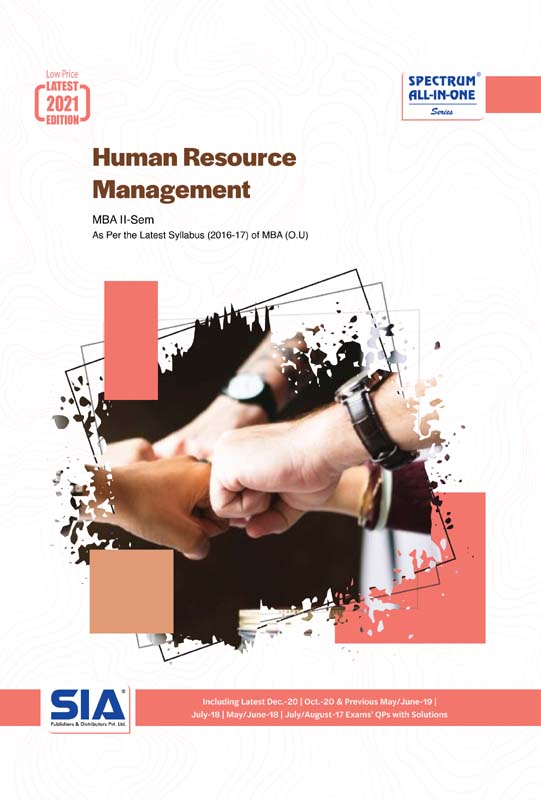

Note: Please check your Spam or Junk folder, in case you didn't receive the email with verification code.
Unit-I
Definition, Evolution, Objectives, Scope and Functions of HRM. HRM Typology, System, Strategy, and Matrix of HR – Stakeholders and Integrated Models of HRM – Line vs. Staff - The Changing Environment and Role of HRM. Competitive challenges influencing HRM – HRIS: Three levels comparison – Competency Framework for HR Professionals.
Unit-II
Job Analysis – Systems Exchange Model. Analysis and Mapping of workflow. Job characteristics model. Job
Design – Job Evaluation – Towers Perrin Model of Total Reward – Performance Appraisal – HR Planning
– Gallagher HR Estimator – Cohort Analysis – Recruitment – Yield Ratio Analysis – Process of Selection, Placement and Orientation. Training Methods – Kirkpatrick and Pecuniary Utility Models of Training – MDP.
Unit-III
Introduction to HRD – HR Accounting – Lev and Schwartz, Flamholtz and Hermanson’s Models – Audit, Research, Policies, Validity generalization of HR – Career Planning – Greenhaus Career Development Model– Protean Career – Psychological Contract: Functions and Types – HR Utility Framework – Markov Employee Transition.
Unit-IV
Dunlop’s IR Model – Organogram – QWL – QC – Grievance Management – Labour Turnover and Stability
Indices – Worker’s Participation in Management – Bate’s Brand Wheel for Employer Brand – Employee
Engagement Index – Employee Value Proposition – Absence Management – Brand Factor.
Unit-V
HR Outsourcing – HR issues in Mergers and Acquisitions – HR Six – Sigma process – HR Index – HR – ROI –Job Diagnostic Model – Emotional Intelligence and Competencies at work – Work Life Integration – Introduction to International HRM, Global HRM and Strategic HRM – HR Scorecard – Paradox Theory as a lens of theorizing for Sustainable HRM – Sustainable HRM Model – Paauwe’s – Paradox Framework for Sustainable HRM.
 No Preview is available for this book
No Preview is available for this book

 Get 100 instant uPoints on the purchase of Rs.100 or above for each order.
Get 100 instant uPoints on the purchase of Rs.100 or above for each order.
CategoriesManagement

Format PDF

TypeeBook